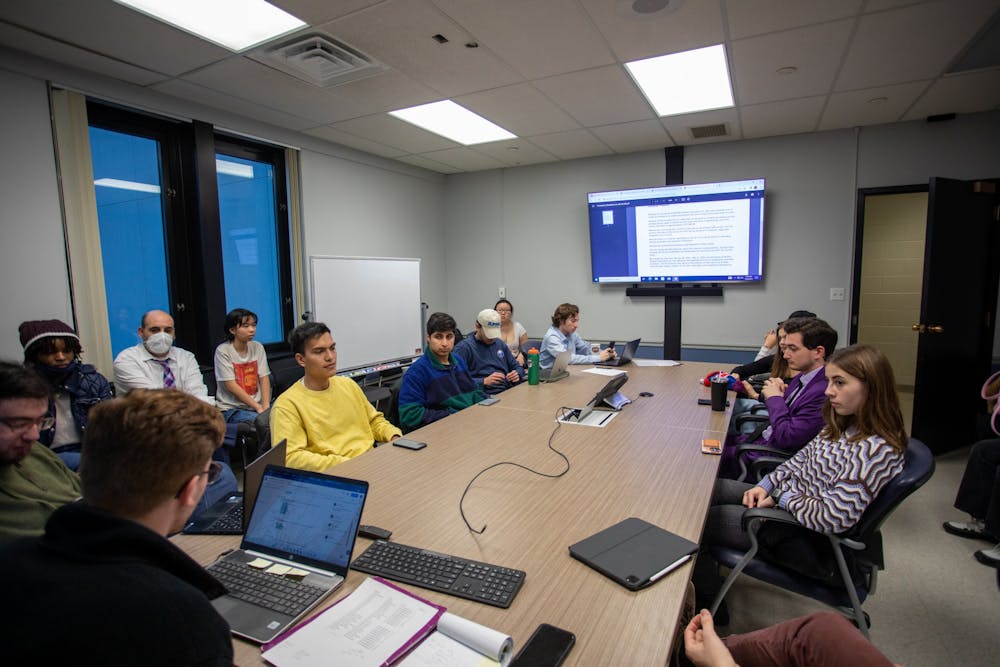The Student Association (SA) Senate decided to bar some clubs from being affiliated with third-party organizations at their meeting Monday.
Clubs in the hobby, POC, special interest and international councils have until May 17 to dissolve ties with any third-party groups or be derecognized by SA.
The new policy came under intense scrutiny at the senate meeting, finally being passed by a vote of 7-1 with five abstentions. Many senate members felt “uncomfortable” voting on the change so soon.
SA President Becky Paul-Odionhin said the policy would “protect SA,” as SA policies sometimes come into conflict with the missions of larger organizations. SA Vice President Sammi Pang also argued in favor of the policy, saying that clubs with third-party affiliations are giving outside organizations control over SA assets.
Both e-board members talked about what prompted the change, telling senators, “We all know why we’re doing this.”
Cutting off their affiliation would not only mean losing the social platform that these chapters gain by using the nationally-recognized name, but also any funding they secure from parent organizations.
The policy doesn’t apply to clubs under the academic, engineering and sports councils. Pang said the SA made the exception because these clubs rely on competitions that UB can’t provide for them.
The easiest way for clubs to comply with this policy is to change their name if they share it with a larger organization. If a club can’t unaffiliate themselves in this way, they can either start over and register as a new club — with a tier I club budget — or find another recognizing agent on campus, like the Graduate Student Association or the Jacobs School of Management. Derecognized clubs cannot operate and advertise on campus, as stated in the Student Clubs and Organization University-Wide Recognition Policy.
“We’re not in the business of forcing clubs to stay with us if what we offer doesn’t meet their needs anymore,” Pang said in defense of derecognizing clubs who do not comply.
SA is planning to meet with all their recognized clubs ahead of the May 17 deadline to discuss their options and ensure the transition goes smoothly.
The policy will affect charity and volunteer clubs, as well as those centered around political advocacy. Matthew Dowd, the hobby council coordinator and Spectrum staff writer, spoke against the policy change. He argued that since parent organizations give many clubs supplemental funding, the policy would force many clubs to rely solely on their SA club budget.
“Lots of clubs would be completely destroyed,” he said.
Pang defended the new policy, saying she heavily researched the possible effects and spoke to clubs before proposing it to the senate. The abstaining senate members urged Pang to talk to more clubs and students to get a better understanding of the impact before passing the new policy.
The news desk can be reached at news@ubspectrum.com
This story originally stated that "derecognized clubs can still operate and advertise on campus." That is inaccurate, as stated in the Student Clubs and Organization University-Wide Recognition Policy. Only recognized student organizations can reserve/rent space on campus, access vendor and lobby tables for free in the Student Union, conduct fundraising activities and access their budget, and use the University’s name and affiliation. We regret this error.





